Ph.D. Physiology and Pharmacology Program Faculty
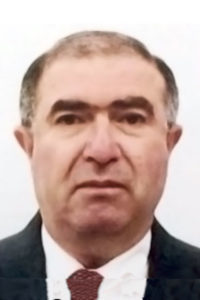 |
Muhammed Abdul-Ghani, M.D., Ph.D. Associate Professor Medicine/Diabetes |
The seminal studies of Dr. Muhammad Abdul-Ghani have helped to define the role of progressive beta cell failure in the evolution from prediabetes to T2DM and to elucidate the contribution of mitochondrial dysfunction in the development of insulin resistance and T2DM. |
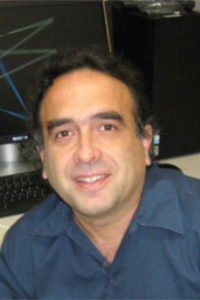 |
Armen Akopian, Ph.D. Associate Professor Endodontics |
A main research interest of Dr. Armen Akopian’s lab is to understand why standard analgesics has sex- and age-dependent efficiency; and importantly, why chronicity of pain conditions affected by sex and age. |
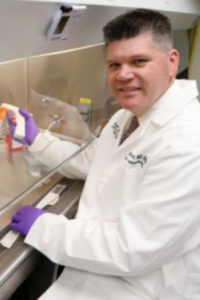 |
Greg Aune, M.D./ Ph.D. Assistant Professor Pediatrics |
Pediatric Cancer Survivorship – Clinical care of long-term survivors of pediatric cancer. |
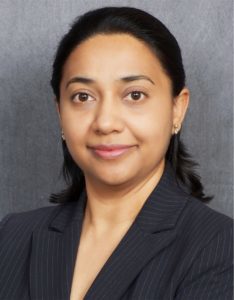 |
Swati Banerjee, Ph.D. Assistant Professor Cellular and Integrative Physiology |
Dr. Swati Banerjee uses the Drosophila model system to investigate the cellular and molecular bases of axonal ensheathment and synaptic development and function. |
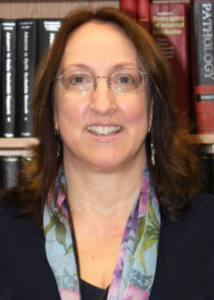 |
Kelly Berg, Ph.D. Assistant Professor Pharmacology |
Dr. Kelly Berg’s lab centers on answering questions concerning the molecular nature of drug efficacy and the mechanisms by which the efficacy of drugs can be regulated. |
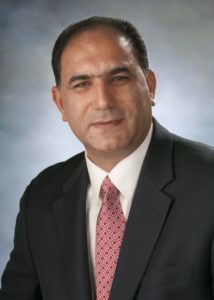 |
Manzoor Bhat, M.S., Ph.D. Professor & Chairman Cellular and Integrative Physiology |
We are investigating the genetic and molecular basis of complex and reciprocal interactions between various types of glial cells, which play a key role in axonal insulation, blood-brain barrier formation and axon guidance across species. |
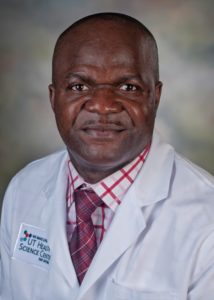 |
Jean C. Bopassa, Ph.D Assistant Professor Cellular and Integrative Physiology |
Dr. Jean Bopassa’s lab general research interest is to investigate the role of mitochondria in cardio-protective effect of hormones against ischemia/reperfusion injury and heart failure. |
 |
Carie R. Boychuk, Ph.D Assistant Professor Cellular and Integrative Physiology |
Dr. Boychuk’s laboratory is particularly interested in how the brain monitors, processes, and integrates energy homeostatic signals under normal physiology and pathological disease states. |
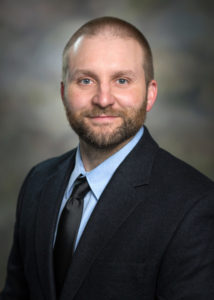 |
Jeffery A. Boychuk, Ph.D Assistant Professor Cellular and Integrative Physiology |
Dr. Boychuk’s lab is dedicated to treating the brain after mechanical and vascular trauma in order to improve lives affected by stroke, traumatic brain injury and epilepsy. |
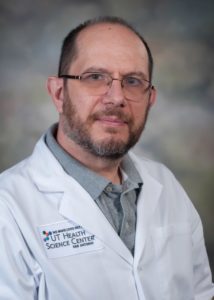 |
Robert Brenner, Ph.D. Associate Professor Cellular and Integrative Physiology |
The focus of Dr. Brenner’s lab has been to understand how ion channels regulate excitability of cells. Our approach is to use electrophysiology and biophysical techniques to understand channel regulation in vitro, and complement these studies by generating mouse models to understand the physiological consequences of ion channel regulation. |
 |
José E. Cavazos, M.D., Ph.D. Assistant Dean, M.D./Ph.D. Program, Professor Neurology |
Dr. José Cavazos’s lab studies activity-dependent plasticity in the hippocampal formation in the developing, adult, and aged brain using a variety of experimental models of epilepsy, seizures, and epileptogenesis. Previous studies from our laboratory have shown that repeated seizures induce progressive neuronal death and axon sprouting that permanently alter the hippocampal circuitry lending it more susceptible to additional seizures and memory dysfunction. |
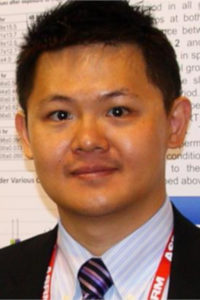 |
T. Arthur Chang, Ph.D., HCLD, ELD, CC Associate Professor Obstetrics & Gynecology |
His research interests include in vitro fertilization (IVF), gamete and embryo development, cryopreservation, preimplantation genetic diagnosis and screening (PGD/PGS), embryo implantation, andrology, ART laboratory quality management, policies and regulations in reproductive technology, as well as nonhuman primate embryology and stem cell biology for modeling reproductive and regenerative medicine. |
 |
William Clarke, Ph.D. Professor Pharmacology |
Research in Dr. William Clarke’s lab is focused on understanding the molecular mechanisms that underlie drug efficacy (the ability of a drug to produce a response) and its regulation. |
 |
Gregory Collins, Ph.D. Assistant Professor Pharmacology |
Research in Dr. Greg Collins’ laboratory is broadly aimed at understanding the determinants of drug-taking and drug-seeking behaviors. |
 |
Lynette C. Daws, Ph.D. Professor Cellular and Integrative Physiology |
Dr. Lynette Daws’ research focuses on the function and regulation of biogenic amine transporters, including “classic” serotonin, dopamine and norepinephrine transporters, as well as organic cation and plasma membrane monoamine transporters; transporters that were recently identified as important regulators of central biogenic amine neurotransmission. |
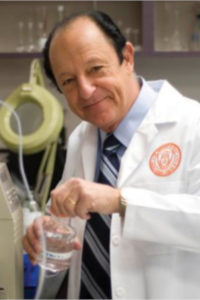 |
Ralph A. DeFronzo, M.D. Professor & Division Chief Medicine/Diabetes |
Dr. Ralph DeFronzo’s major interests focus on the pathogenesis and treatment of type 2 diabetes mellitus and the central role of insulin resistance in the metabolic-cardiovascular cluster of disorders known collectively as the Insulin Resistance Syndrome. |
 |
Bruno Doiron, Ph.D. Assistant Professor Diabetes |
Dr. Doiron has made major discoveries in the field of gene regulation by nutrients and have 4 patents on the modulation of glucose metabolism as it relates to the treatment diabetes and cancer. He has extensive experience in basic research at the physiologic and molecular levels and then application to the biotechnology field. |
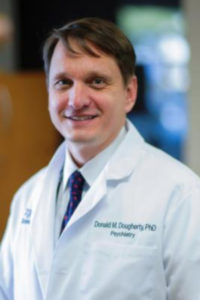 |
Donald M. Dougherty, Ph.D. Professor Psychiatry |
Dr. Donald Dougherty’s research interests are focused on understanding impulsive behaviors, with primary emphasis on problems associated with drug abuse and suicidality. |
 |
Marc D. Feldman, M.D. Professor Cardiology |
Dr. Marc Feldman is working on developing novel instrumentation in collaboration with faculty at the School of Engineering at the University of Texas in Austin. These instruments are often commercialized for use in animals and patients including Admittance to measure left ventricular pressure volume relations, and Optical coherence tomography to determine the composition of atherosclerotic plaques. |
 |
Charles P. France, Ph.D. Professor Pharmacology |
Research in Dr. Charles France’s lab focuses on interactions between behavior and pharmacology and how those interactions impact the abuse liability of drugs. |
 |
Alan Frazer, Ph.D. Professor & Chairman Pharmacology |
Dr. Alan Frazer’s primary research interest is the mechanism of action of antidepressants, with a focus on how treatment with such drugs affects the functioning of two central monoamine systems, noradrenergic and serotonergic, that are important targets for their clinical effects. |
 |
Teppei Fujikawa, Ph.D. Assistant Professor Cellular and Integrative Physiology |
Our scientific interest is to unravel the mechanism by which the central nervous system (CNS) regulates whole body metabolic homeostasis such as glucose and fat metabolism, energy expenditure, and food intake. |
 |
Veronica Galvan, Ph.D. Associate Professor Cellular and Integrative Physiology |
The broad goal of Dr. Veronica Galvan’s research group is to identify molecular pathways that make the aged brain vulnerable to Alzheimer’s, and potentially to other neurodegenerations |
 |
Lisa R. Gerak, Ph.D. Assistant Professor Pharmacology |
Studies conducted in Dr. Lisa Gerak’s lab investigate the behavioral effects of drugs, primarily benzodiazepines and opioids. Although the therapeutic potential of these drugs is undeniable, their clinical utility is reduced by adverse effects, including abuse liability and the development of tolerance and dependence. |
 |
Rita Ghosh, Ph.D. Associate Professor Urology |
Dr. Rita Ghosh’s lab research looks at gene-environment interactions that lead to oxidative stress in cancer and to develop ways to target these deregulated pathways as targets for cancer prevention/therapy. |
 |
Andrea Giuffrieda, Ph.D. Vice President for Research Associate Professor Pharmacology |
Dr. Andrea Giuffrida’s lab is interested in the role played by the endocannabinoid system in regulating psychomotor functions. The endocannabinoids are a family of naturally occurring lipids that mimic the effects of marijuana by stimulating specific receptors (cannabinoid receptors) epressed in the brain areas that are critical for the regulation of motor behaviors, such as the basal ganglia |
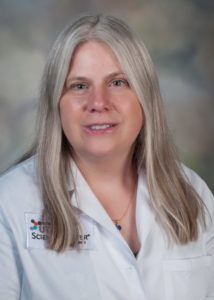 |
Georgianna Gould, Ph.D. Associate Professor Cellular and Integrative Physiology |
Social behavior, its serotonergic underpinnings and developmental disruption of the social brain in autism, schizophrenia, and other psychiatric disorders are the focus of Dr. Georgianna Gould’s research. |
 |
Kenneth M. Hargreaves, D.D.S., Ph.D Professor & Chair Endodontics |
Dr. Ken Hargreaves lab’s primary research interests are in the pharmacology of pain and inflammation. A major focus is on pharmacological regulation of unmyelinated “C” fiber nociceptors, as well as their plasticity in response to inflammation or nerve injury. Investigations are in progress evaluating the effects of TRPV1, cannabinoids, opioids, adrenergics, NPY, sex steroids and other drugs on regulating the activity of these fibers. |
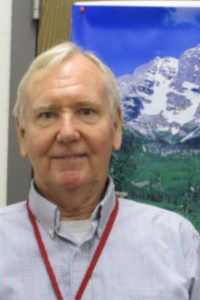 |
Stephen E. Harris, Ph.D. Professor Periodontics |
Dr. Stephen Harris lab is interested in various aspects of gene regulation since 1965. Working in Dr. Bert O’Malley lab, he proved that estrogen induced the ovalbumin gene at the mRNA level in 1974. He has worked on various aspects of gene regulation by growth factors and androgens since that time. |
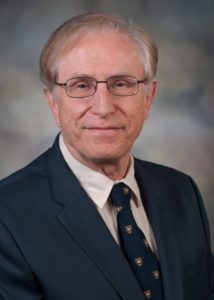 |
Peter J. Hornsby, Ph.D. Professor Cellular and Integrative Physiology |
Dr. Peter’s Hornsby’s lab focus in on nonhuman primate iPS cells in regenerative medicine. Before personalized cell therapy is used in humans, there is need to move beyond rodent models. Beyond rodents, nonhuman primates play key roles in biomedical research. The marmoset is a suitable size and life span for aging studies, and there is the availability of disease models, e.g. Parkinson’s disease, in this species. |
 |
Martin Javors, Ph.D. Professor Director of the Biological Psychiatry Analytical Labs |
Dr. Martin Javors’ principal research interest is biomarkers for alcohol consumption. He also collaborates on many research projects related to drug abuse and addiction, aging, and other areas of research by performing analytical biochemical measurements. |
 |
Nathaniel A. Jeske, Ph.D. Associate Professor Oral & Maxillofacial Surgery |
Dr. Nathan Jeske’s lab conducts research on signaling mechanisms that mediate inflammatory pain and analgesia. Over 100 million Americans suffer from pain annually, and understanding how this sensation graduates to a chronic state, as well as how to treat it efficaciously, are the primary research goals of the Jeske lab. |
 |
Jun Hee Kim, Ph.D. Assistant Professor Cellular and Integrative Physiology |
Our research interest is to understand regulatory mechanisms of presynaptic excitability and synaptic transmission in the central nervous system (CNS) during physiological or pathological conditions (e.g. central demyelination or brain hypoxia-ischemia), using electrophysiology and imaging techniques. |
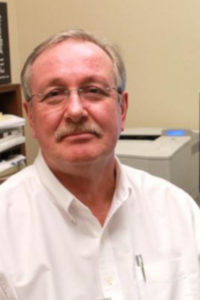 |
Wouter Koek, Ph.D. Professor Psychiatry |
The abuse of prescription opioids is a growing public health problem. Prescription opioid abuse often starts in adolescence, but most of what we know about opioids is from research in adults. Dr. Koek’s lab examines abuse-related effects of morphine in adolescent mice and the mechanisms underlying adolescent vulnerability to opioid abuse. |
 |
Yui-Wing Francis Lam, Ph.D. Professor Pharmacology |
Significant variability in efficacy and toxicity of medications among patients is largely attributed to innate differences in their capacity to eliminate and react to medications. Dr. Lam has studied how ethnicity and genetic differences affect disposition and response to psychotherapeutic drugs. This has translated to improved understanding of the biological basis for why patients require different doses to elicit appropriate responses, particularly Asians. |
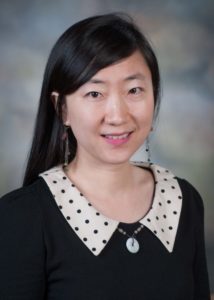 |
Hye Young Lee, Ph.D Assistant Professor Cellular and Integrative Physiology |
Autism spectrum disorders (ASD) form a heterogeneous neurodevelopmental syndrome characterized by deficits in language development/social interactions, and repetitive behavior/restricted interests. |
 |
Feng Liu, Ph.D. Professor Pharmacology |
The major focus of our research effort concerns the mechanisms of obesity-induced metabolic diseases such as type 2 diabetes, which is a serious disease that affects 8.3% of the population in the United States. |
 |
Daniel J. Lodge, Ph.D. Associate Professor Pharmacology |
Our research is focused on trying to better understand the regulation of the dopamine system in both normal and disease states. Using a combination of techniques including, in vivo electrophysiology, molecular biology and behavior we are attempting to develop novel treatments for schizophrenia. |
 |
Susan L. Mooberry, Ph.D. Professor Pharmacology |
A major focus of Dr. Mooberry’s laboratory is the discovery of new drugs for the treatment of cancer, primarily breast cancer and solid pediatric cancers. Our historic focus has been on the identification of novel microtubule-targeting agents from natural products and synthetic chemistry efforts. This work continues and we are also evaluating diverse natural product extracts for activity against specific types of cancer, including the molecularly defined subtypes of triple negative breast cancer and pediatric solid tumors. |
 |
David A. Morilak, Ph.D. Professor Pharmacology |
Dr. David Morilak’s research addresses the neurobiology of stress and its negative impact on health and brain function. He studies how the brain adapts to effectively cope with stress; how chronic stress can lead to serious psychiatric disorders, including depression, PTSD and other illnesses; and his laboratory investigates new and more effective therapeutic strategies for the treatment of such disorders. |
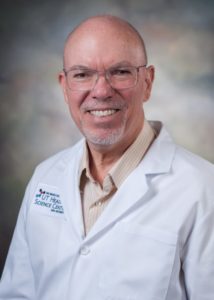 |
James F. Nelson, Ph.D. Professor Cellular and Integrative Physiology |
Dr. Nelson’s research aims to understand the genetic and physiological basis for aging, using nutritional and pharmacologic interventions that extend rodent lifespan as probes. Most recently, his laboratory discovered dramatic genetic variation in the lifespan response to dietary restriction, including a life-shortening effect in some genotypes. |
 |
Luke Norton, Ph.D.
Assistant Professor
Medicine/Diabetes |
My overall goal as a researcher is to combine physiological studies in humans and rodents with cutting-edge molecular and genomics approaches to improve our understanding of the pathogenesis of type 2 diabetes. In particular, I am interested in how novel type 2 diabetes candidate genes influence an individual’s risk for diabetes at the physiological and molecular/genomic level. |
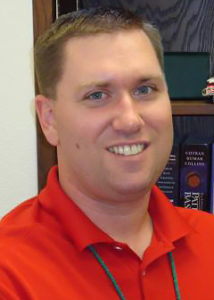 |
Jason O’Connor, Ph.D. Assistant Professor Pharmacology |
My laboratory is interested in understanding the complex interactions between the immune system and the brain, with an emphasis on inflammation-induced neuropsychiatric and neurodevelopmental diseases. |
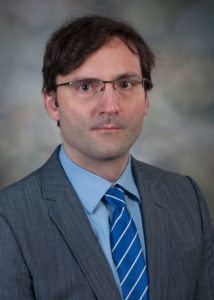 |
Martin Paukert, M.D. Assistant Professor Cellular and Integrative Physiology |
Dr. Martin Paukert’s lab is interested in the role of neuron-astroglia interaction in neuromodulation. Astroglia are recognized for their homeostatic support functions during neuronal activity. |
 |
Jason Pugh, Ph.D. Assistant Professor Cellular and Integrative Physiology |
Dr. Jason Pugh’s lab is interested in understanding how synaptic properties are fine-tuned to function within specific circuits and process information. |
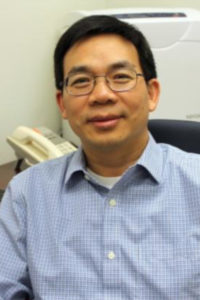 |
Qitao Ran, Ph.D. Associate Professor Cell Systems and Anatomy |
The main research interest of my lab is to illustrate the underlying mechanisms of mitochondrial dysfunction in Alzheimer’s disease and aging, with a goal of identifying novel targets for Alzheimer’s disease prevention and therapy. |
 |
April Risinger, Ph.D. Assistant Professor Pharmacology |
Dr. April Risinger’s lab is focused on the discovery and preclinical development of novel natural products that have anticancer potential |
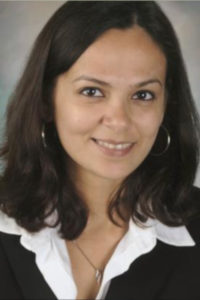 |
Shivani Ruparel, Ph.D. Assistant Professor Endodontics |
Dr. Ruparel’s research program focuses on elucidating mechanisms for cancer cells and sensory neuron interactions in mediating pain as well as tumorigenesis. Her research investigates the contribution of oral cancer cells in regulating sensory nerve terminals at the site of tumor growth leading to cancer-induced pain and studying the mechanisms underlying this communication. |
 |
Gangadhara Sareddy, Ph.D. Assistant Professor Obstetrics & Gynecology |
Sareddy’s current research interest include: 1) understanding the significance of histone lysine demethylase KDM1A and nuclear receptor signaling in glioma stem cells and hypoxia 2) studying the tumor suppressor functions of estrogen receptor beta signaling in ovarian cancer progression and therapy resistance. |
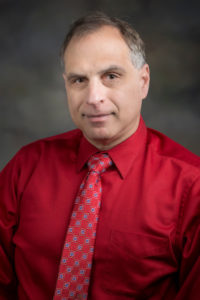 |
Mark S. Shapiro, Ph.D. Professor Cellular and Integrative Physiology |
The research program of the Shapiro laboratory centers on the physiology, structure and regulation of voltage-gated K+ and Ca2+, TRP and Cl– ion channels that serve multiple roles in nerve and muscle, as well as their roles as novel therapeutic targets in myriad diseases of the nervous system. |
 |
Yuguang (Roger) Shi, Ph.D. Chair in Metabolic Biology Professor of Pharmacology Barshop Institute for Longevity & Aging Studies |
Dr. Yuguang (Roger) Shi’s lab focuses on translational aspects of aging-related metabolic diseases using molecular, cellular, metabolic, and transgenic approaches. Our work has recently identified a critical missing link between mitochondrial dysfunction in aging and the onset of various aging-related diseases, paving the way for the development of novel treatment for these pathogenic conditions. |
 |
Paula K. Shireman, M.D. Vice Dean for Research School of Medicine Professor Surgery |
Dr. Paula K. Shireman’s lab studies the role of bone marrow-derived cells in angiogenesis and skeletal muscle regeneration and how aging affects these phenomena. Macrophage polarization states exhibit different functions in muscle regeneration. |
 |
Gek-Ming Sia, Ph.D. Assistant Professor Pharmacology |
Research in my lab focuses on the molecular mechanisms of synapse formation and elimination. |
 |
Thomas J. Slaga, Ph.D. Professor Pharmacology |
The research in Dr. Thomas Slaga’s laboratory is focused on glucocorticoid hormones (GC), very potent inhibitors of physiological DNA synthesis in keratinocytes in vivo. |
 |
James Stockand, Ph.D. Professor Cellular and Integrative Physiology |
Research in the Stockand laboratory focuses on ion channels and ion transport. We are particularly interested in the proteins involved in controlling ion movement into neurons and epithelial cells. |
 |
J. Randy Strong, Ph.D. Professor Barshop/ Pharmacology |
My research has two major objectives: the first is directed toward understanding receptor mechanisms involved in regulating tyrosine hydroxylase (TH) gene expression, the rate limiting enzyme in the synthesis of catecholamines. The latter substances are crucially involved in various life-sustaining functions and are implicated in diseases such as hypertension, depression and Parkinson’s disease |
 |
Rajeshwar R. Tekmal, Ph.D. Professor Obstetrics & Gynecology |
The long-range objective of Dr. Tekmal’s research is to elucidate the role of hormones and growth factors and their receptors in the initiation and progression of breast, cervical and ovarian cancers. |
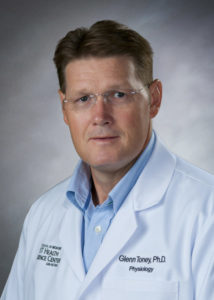 |
Glenn M. Toney, Ph.D. Professor Cellular and Integrative Physiology |
Dr. Glenn Toney’s research findings indicate that neurological dysfunction is a major unrecognized cause of treatment resistant hypertension. Indeed, studies show that specific populations of neurons in the brainstem and hypothalamus generate exaggerated motor neuron output trafficked through sympathetic nerves. |
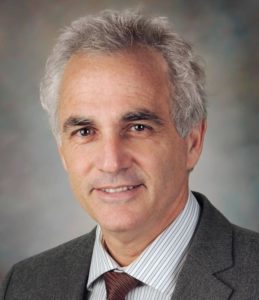 |
David S. Weiss, Ph.D. Dean Graduate School of Biomedcial Sciences Professor Cellular and Integrative Physiology |
y-aminobutyric acid (GABA) is the major inhibitory neurotransmitter in the mammalian brain. Dysfunctions of GABA-mediated inhibition have been implicated in the etiology of a variety of brain disorders such as epilepsy. Furthermore, GABA receptors are a target for a variety of therapeutic, neuroactive compounds such as benzodiazepines and barbiturates. |
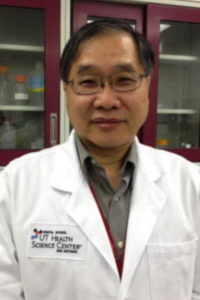 |
Chih-Ko Yeh, Ph.D., BDS Professor Comprehensive Dentistry |
Dr. Yeh’s research is focused on studying the effect of aging on oral health, with a special emphasis on saliva and salivary gland biology/physiology. These studies include: 1) monitoring saliva function in clinical samples from aging, hypertensive, and diabetic stratified populations, as well as HIV infected patients, 2) exploring the pathogenesis of age-related oral and salivary gland diseases, and 3) salivary gland regeneration/repair with stem cells using genomic and proteomic approaches. |
 |
Mengwei Zang, M.D., Ph.D. Associate Professor Chair in Aging Research Molecular Medicine |
The Zang lab focuses on the molecular mechanisms underlying diabetes and fatty liver disease. |
